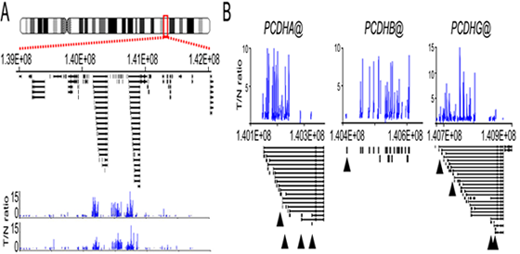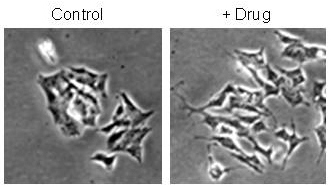
Professor Karim Malik
B.Sc.(Sur.), Ph.D.(Cantab.)
Current positions
Professor of Molecular Oncology
School of Cellular and Molecular Medicine
Contact
Press and media
Many of our academics speak to the media as experts in their field of research. If you are a journalist, please contact the University’s Media and PR Team:
Research interests
Group: Cancer Epigenetics Lab
Cancer Epigenetics

As well as genetic lesions, cancer cells also acquire defects in regulating levels of gene expression, which can lead to their enhanced survival and inappropriate growth. Epigenetics is a key mechanism for regulating gene expression levels, and is dependent on modification of DNA and chromatin by reversible enzymatic modifications such as methylation.
My group are using genome-wide epigenetic analysis of cancer cells to identify novel tumour suppressor genes and oncogenes that may, when deregulated, contribute to tumorigenesis. The functions of proteins encoded by deregulated genes, such as the protocadherins shown in figure 1, are also assessed as this may lead to new therapeutic strategies for cancer in the future. In addition, we are also interested in the developmental functions of such genes within the kidney.
We are also investigating novel drugs that may be utilised in the treatment of neuroblastoma, a paediatric cancer with poor prognosis. By modulating the epigenetic machinery, such drugs may be effective in driving differentiation and/or cell-death of cancer cells (see figure 2).

Figure 2. Differentiation of neuroblastoma cells induced by drugs modulating the epigenetic machinery. The treated cells (right panel) show neurites indicative of differentiation.
Group members
- Zach Dixon
- Kelli Gallacher
- Dr Madhu Kollareddy
- Dr Marianna Szemes (Children with Cancer UK)
- Jake Bellamy (MSc student)
- Ji Hyun Park (PhD student)
Enquiries for postgraduate research placements (PhD/MRes) are welcome
Projects and supervisions
Thesis supervisions
Investigating Inhibition of MYCN in the Treatment of Wilms' Tumour
Supervisors
G9a as a potential therapeutic target in MYCN-amplified neuroblastomas
Supervisors
Investigating the Role of BASP1 Lipidation in WT1/BASP1 Mediated Gene Regulation
Supervisors
Investigating the therapeutic implications of RAS Regulators in Triple Negative Breast Cancer
Supervisors
Investigating the role of EZH2 and PRC2 in WT1/BASP1-mediated gene regulation
Supervisors
Evaluating a Novel Methyltransferase Inhibitor for Poor-Prognosis Rhabdomyosarcoma Therapy
Supervisors
Overcoming drug resistance for efficacious neuroblastoma therapeutics
Supervisors
The identification and functional analysis of mutant p53-G9a oncogenic axis in anaplastic Wilms’ tumour
Supervisors
Assessment of PRMT5 inhibition as a therapeutic strategy for Wilms’ Tumour.
Supervisors
Investigating the role of H3K4 demethylase enzymes in WT1-BASP1-mediated gene regulation
Supervisors
Publications
Recent publications
08/05/2025Structure-Guided Design of ISOX-DUAL-Based Degraders Targeting BRD4 and CBP/EP300
Journal of Medicinal Chemistry
Identifying targetable metabolic dependencies across colorectal cancer progression
Molecular metabolism
Spliceosomal vulnerability of MYCN-amplified neuroblastoma is contingent on PRMT5-mediated regulation of epitranscriptomic and metabolomic pathways
Cancer Letters
The epithelial splicing regulator ESRP2 is epigenetically repressed by DNA hypermethylation in Wilms tumour and acts as a tumour suppressor
Molecular Oncology
Transcriptomic analyses of MYCN-regulated genes in anaplastic Wilms' tumour cell lines reveals oncogenic pathways and potential therapeutic vulnerabilities
Cancers

